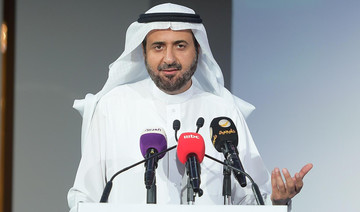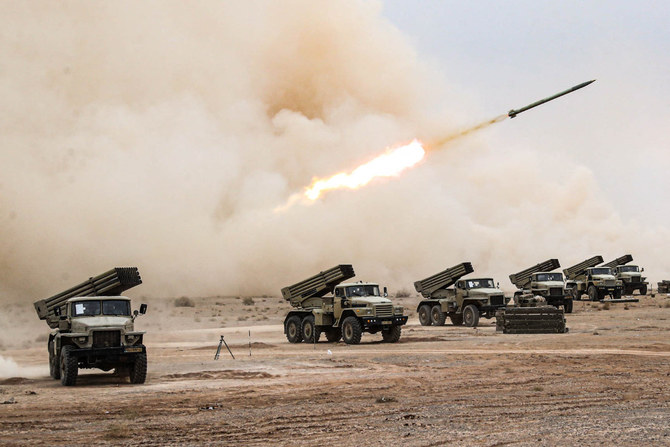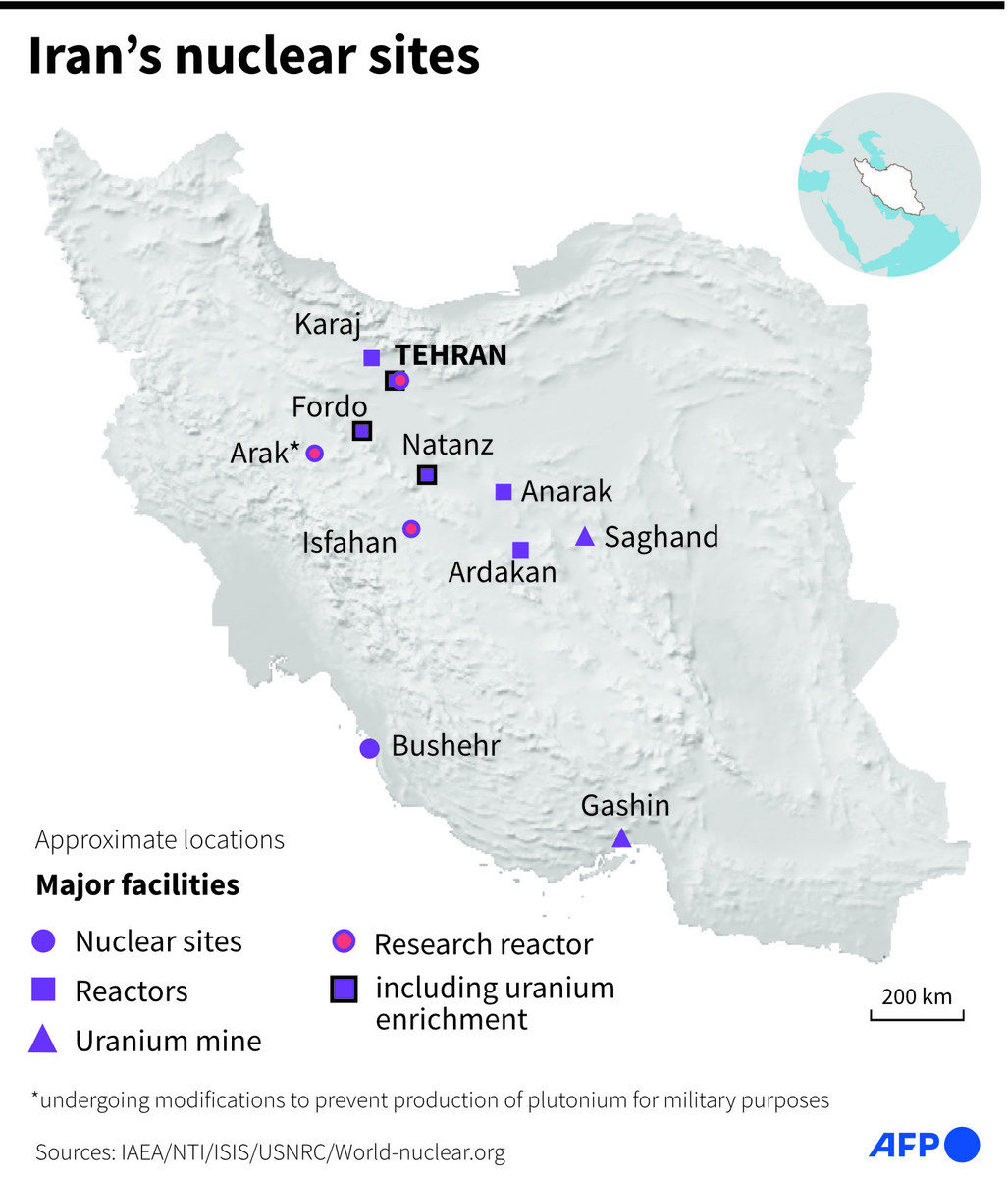ABU DHABI: The introduction of VAT and a “sin tax” on tobacco, coupled with the rise of free trade zones that underpin the GCC’s reputation as a global trade hub, are creating a gateway to counterfeit goods and illicit trade across the region.
Emerging technologies, legal loopholes, e-commerce and regional socio-economic instability have also opened up new opportunities for terrorism, intellectual property crimes and other trade crimes, according to experts at a conference on Tuesday, who urged GCC countries “to work together in harmony” and embrace transparency to stem corruption and extortion.
In a bid to diversify government revenues and strengthen economic development, the Gulf Cooperation Council instituted a value-added tax; Saudi Arabia and the UAE implemented VAT at 5 percent from January 1, 2018, while the other GCC states are expected to follow suit. In parallel, a separate excise tax of 100 percent is being selectively levied on harmful products such as tobacco.
Warning taxation was a “double-edged sword,” Brendan LeMoult, anti-illicit trade and fiscal affairs vice-president at JTI (Japan Tobacco International), said while countries have a need to diversify, criminals can be quick to take advantage of changing market conditions and said, more than ever before, there is a clear business case for bringing the fight against illicit trade into the mainstream.
“Unfortunately, often when that tax goes up the illicit trade will go up,” said LeMoult, speaking at the third Global Illicit Trade Forum in Abu Dhabi. "Wherever there are big price differences between markets, which are mostly driven by taxation, illegal trade takes place.”
Last June, Saudi Arabia also became the first GCC country to impose an excise tax at 100 percent on tobacco products and energy drinks, and 50 percent on soft drinks, following ratification of the tax treaties by the General Secretariat of GCC on May 23, 2017. The move was shortly followed by the UAE, which also imposed the same hike from October of last year.
"With the illicit trade in tobacco, where countries in the GCC have increased taxes, what will understandably happen – which we hate to see in countries like the UAE and Saudi Arabia which have been so good at fighting crime – is that illicit criminals and serious organized criminal networks embedded in a country,” said LeMoult. "And once they infest a country they are hard to get rid of. Criminal networks operating in from illicit tobacco trade can expand: You will see them get into drugs, weapons, human practices. And that is what you want to prevent."
LeMoult said taxes – especially a sharp increase as seen with”‘sin tax” goods – can drive consumers “underground.”
"It is the issue of elasticity – it can snap,” he said. "You do not want to raise it to a point where the consumer snaps and turns to the illicit market."
He said the GCC can learn from countries such as Russia, which has seen a huge rise in illicit trade because of disparity in taxes, resulting in a huge underground trade of tobacco originating from Belarus. Also, in New York, LeMoult said, when it comes to tobacco trade, about 60 percent of tobacco products sold are counterfeit as a result of high tax hikes, a figure similarly seen in Malaysia.
Whether the desired effect of a high tax is to drive tax revenue or to encourage people to stop smoking, often it can be counterproductive, he said. "There is a point where if you keep hiking tobacco tax you will end up losing revenue and it drives people underground,” he said. “And this market is so big and so vast that they can supply products non-stop.”
He said the GCC can prevent this by taking a unified and long-term approach when it comes to taxation.
"There are good practices, and the GCC can build on that by implementing moderate and stable taxation plans,” he said. “Saudi Arabia, the UAE and the wider GCC can all take action to stop illicit trade.
"The UAE works fantastically well with us in gathering information on illegal products and taking action. The law enforcement is doing a great job. They take the information we give them, and they have made significant seizures.
“However, it is a worldwide issue. When the tax goes up, the illicit trade will go up – it boils down to making sure to let the market settle, letting harmonization become part of the GCC so every market is similar, and develop a long-term tax calendar that will benefit revenue and consumption in achievable goals. Regulators, law enforcement experts and the private sector need to work together on the issue."
Abdelhak Senhadji, deputy director of fiscal affairs at the International Monetary Fund (IMF), said fluctuating oil prices have led to GCC countries diversifying their economies through different revenue streams but also cautioned about taxation, saying with high prices “comes corruption and illicit trade.”
He said tackling the health perils that come with tobacco consumption means reducing affordability for the customer – which has additional befits to the economy – but said the problem with hiking prices will always come with some consumers turning to the black market for cheaper, more affordable options.
The conference also addressed how, while e-commerce has been dubbed the next frontier for retail in the Middle East, with the market forecast to reach $48.8 billion, this shift online presents a new channel for illicit trade, while criminals are also exploiting loopholes in Free Trade Zones (FTZs) to conduct illicit activity such as the trade of counterfeit goods, intellectual property crimes and money laundering.
While FTZs can be of huge benefit to a country's GDP and employment rates – the UAE's flagship Jebel Ali Free Zone, for instance, attracts more than 20 percent of the United Arab Emirates’ foreign direct investment – FTZs can be blind spots for regulators and law-enforcement agencies, according to Christopher Clague, managing editor, Asia and global editorial lead, trade and globalization at The Economist Intelligence Unit.
Michael Morantz, policy analyst of illicit and counterfeit trade with the Organization for Economic Co-operation and Development (OECD), described free zones as “magic black boxes” which will continue to facilitate illicit global trade, unless uniform and more stringent measures are introduced.
"Free zones are not a cause of illicit trade, but they are found to be an issue,” he said. "They are a great way of boosting jobs, and increasing GDP and employment numbers."
However, there is a lack of physical access for law enforcement to oversee free trade zones, coupled with a lack of cooperation with businesses and a lack of transparency that allow many companies to use free trade zones to operate illegal activity, he said.
Addressing counterfeit goods as an example of illicit trade, LeMoult said: “You are seeing a lot of cigarettes important through free zones, buried behind milk, or mis-declared as furniture, for example. You see, you come in and one truck can contain 10million illicit cigarettes."
Raed Safadi, chief economic advisor to the director-general at the Dubai Government, said combating illicit trade was “very high on the agenda” within the UAE and Saudi Arabia, but there is a lack “real data” to show the breadth of the problems. While illicit trade’s existence is well-known, the nature of the trade itself makes its size hard to determine: estimates range from $650 billion to over $3 trillion globally.
David M. Luna, chief executive at risk assessment firm Luna Global Networks, said he was “really worried and concerned” about the current state of play in the global illicit trade market.
"You can really see the breadth and scale of the issue; from trading illicit tobacco to alcohol, to counterfeit medicines, to human trafficking – these are booming issues. We are talking about an industry worth trillions of dollars –and the fact is some of these issues will double in a few years. Within the international community, partners, many are trying to fight illicit markets across borders.
"But it is a challenge and it underscores the importance of working across all communities to coordinating law enforcement agencies, such as Interpol, to really to double our efforts, elevate our game and make progress against the corrupt facilitators to begin to turn this issue around.”





















